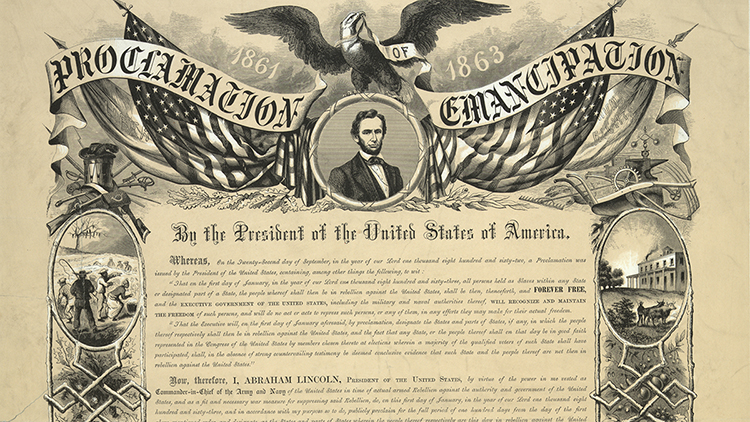
In 1863, the United States was approaching the third year of devastating civil war, pitting the Union (northern states) against the Confederacy (the southern states). The major issue dividing the country was slavery. Abraham Lincoln morally opposed slavery, and he was worried that, as the United States grew, new states in the west might want to allow slavery.
On January 1, 1863, Lincoln issued the Emancipation Proclamation. It declares that “all persons held as slaves are, and henceforward shall be free.” This document, however, did not mean that slaves immediately were set free. The Proclamation was limited. It only applied to “rebellious states”—states that had left the United States to form the Confederacy. Border states such as Kentucky and Missouri were unchanged. As Union forces occupied southern states, the slaves in those states were freed. The freedom that the proclamation promised, then, depended on the Union’s victory in the war.
Although slaves were not immediately set free, the Proclamation changed the war and those fighting in it. In the eyes of Union soldiers, it made the war a war for freedom and strengthened the Union’s resolve. The Proclamation also allowed African American men to enlist in the Union Army and Navy. By the time the war was over, almost 200,000 African American soldiers had fought for the Union.
It wasn’t until the passage of the 13th Amendment in 1865 that the institution of slavery in the United States was formally outlawed. By then, Lincoln had been assassinated. He didn’t live to see the end of slavery in the United States.
What Do You Think? Why did Abraham Lincoln issue the Emancipation Proclamation?
Photo Credit: Library of Congress Prints & Photographs Division [LC-DIG-pga-04067]



